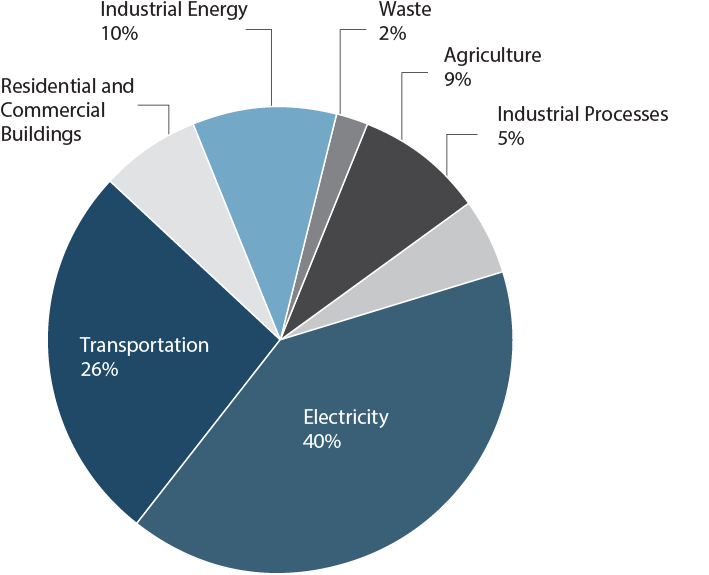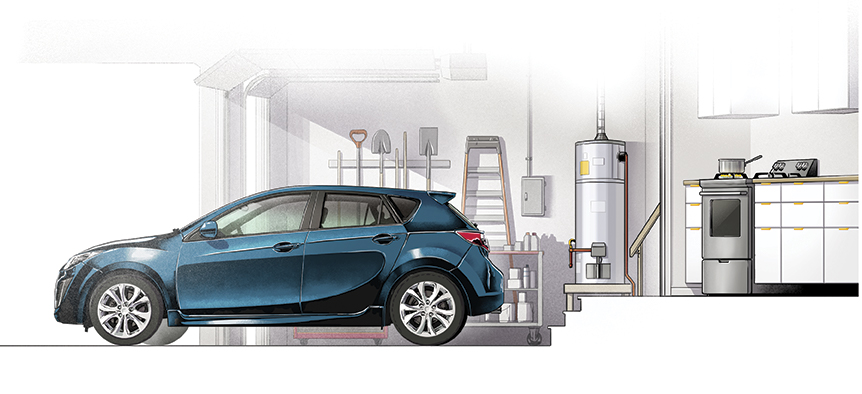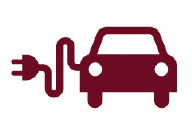Since 2018, Western Resource Advocates has worked to transition electricity production—one of the largest sources of greenhouse gas pollution in the Interior West—to clean, zero-carbon resources. Through our Climate Fix initiative, we set a goal to cut the power sector’s annual carbon dioxide emissions by at least 94 million tons (45% below 2016 levels) by 2030, and we have focused on the region’s eight biggest utilities.
Nearly three years into the Climate Fix, and with your support, we have made significant progress toward reaching our emission reduction goals. To date, our work has put us on track to secure 67 million tons of annual carbon dioxide reductions from the region’s utilities by 2030. We aim to continue working with those utilities to achieve commitments for even deeper reductions in carbon pollution. But to fully address climate change in our region, we need to double down on the next big challenges in fighting climate change: greenhouse gas emissions from vehicles and buildings.
Powering our vehicles and homes with clean electricity in the years ahead will be a critical component of achieving the carbon emission reductions by 2050 that science tells us are needed to avoid the worst impacts of climate change. Efficient heat-pump systems and electric cooktops would replace gas furnaces and stoves, and cars would run on battery power from electricity generated by carbon-free resources.
Over the next few years, WRA plans to amplify its climate change work through efforts to shift the Interior West toward transportation and building electrification, while also modernizing the grid to deliver ever larger amounts of clean electricity to power the economy.
The Transportation Sector
To address climate change in the West, we must cut carbon emissions from fossil-fueled transportation. A growing number of Western states are evaluating, adopting, and implementing transportation electrification policies that will save their residents money in the long term and result in numerous health and environmental benefits.
The Building Sector
Across the U.S. economy, carbon dioxide pollution from natural gas—which is used in power plants, homes and businesses, and industry—has now surpassed emissions from coal. In the Interior West, gas and other fossil fuels are used to heat about 77% of all homes—the highest proportion in the nation. Transitioning homes and office buildings to electric power instead of gas is critical to meeting the climate challenge.
The Electricity Sector
While transportation and building electrification are important, we need clean electricity to power those vehicles, homes, and offices. In the Interior West, fossil-fueled power generation remains the largest source of the greenhouse gas emissions that drive climate change. WRA is continuing its work to accelerate a transition to clean energy generation for use in our vehicles, buildings, and industry.

In Western Resource Advocates’ six-state region, transportation is the second largest source of emissions, behind the electric power sector; natural gas used in residential and commercial buildings and by industry is the third largest source of emissions. WRA’s strategies to decarbonize the electric sector and electrify transportation, buildings, and industry will tackle 83% of the region’s total emissions.


In 2016, transportation sector emissions in the United States surpassed those from the electric utility sector for the first time. But a growing number of states—including Colorado, Arizona, Nevada, and New Mexico—are taking action. These states are working toward adopting and implementing transportation electrification policies that will save their residents money in the long term, help ensure cleaner and healthier air quality, and reduce the carbon pollution that drives climate change.
State governments can help expand the adoption of electric vehicles through strategies that create incentives for vehicles and charging infrastructure and require utilities and automakers to provide the vehicles and charging stations. States also can help accelerate EV adoption by making vehicle charging less expensive and increasing the availability of public and at-home charging. WRA is working to ensure those state efforts maximize the emission reductions of transportation electrification while delivering the most savings to ratepayers and providing equal opportunities for low-income communities to access the benefits of electric vehicles.
We also must address the fossil fuel pollution that comes from homes and buildings. Homes and other buildings account for about 12% of all greenhouse gas emissions in the United States. Gas-fueled furnaces, water heaters, and gas stoves also create harmful indoor air pollution and cost consumers more money over time. Electric heat pumps and cooktops can make a big difference.
But the way electric utility rates are currently designed can pose problems when planning for increased demand from electrified buildings. WRA is working to implement innovative solutions in rate design, including creating time-of-use rates that charge ratepayers lower prices for using electricity at off-peak times and that provide incentives for energy efficiency.
Opportunities Ahead for Clean Energy in the West
This year, Western Resource Advocates is working to advance building and transportation electrification across the Interior West, with both regulatory and legislative efforts. With your help, we’ll see these initiatives through and help reduce the carbon emissions in our region that contribute to climate change.

In Colorado, WRA has been working with our coalition partners to develop legislation to help reduce emissions in the building sector, in keeping with the goals of last year’s HB 1261 law, which set economy-wide emissions reduction targets. To encourage transportation electrification, WRA in Nevada has helped craft a bill to require NV Energy to make substantial investments to expand electric vehicle charging infrastructure across the state. The bill complements Nevada Gov. Steve Sisolak’s current efforts toward having the state adopt Clean Cars standards. It includes provisions that would help ensure that low-income communities in Nevada have access to EV infrastructure. Both the Colorado and Nevada legislative sessions begin in February.

On the regulatory front, WRA will be working with Colorado’s Public Utilities Commission to ensure optimal implementation of Xcel’s $110 million transportation electrification plan. The plan calls for building 20,000 new residential, commercial, and high-speed charging stations and would help support 450,000 electric vehicles in its service territory by 2030. With provisions negotiated by WRA, the plan aims to increase access to EV charging for single-family home owners, apartment dwellers, low-income communities, small businesses, and Transportation Network Companies such as Uber and Lyft. In Arizona, at the request of the Arizona Corporation Commission (ACC), utilities have been working to develop transportation electrification plans. WRA continues to be heavily engaged in that process to ensure the utility plans maximize consumer and environmental benefits of EVs and establish optimal regulatory oversight. WRA will remain engaged as the plans evolve. WRA also is working with utilities in New Mexico and Utah to secure approval of robust transportation electrification plans.





